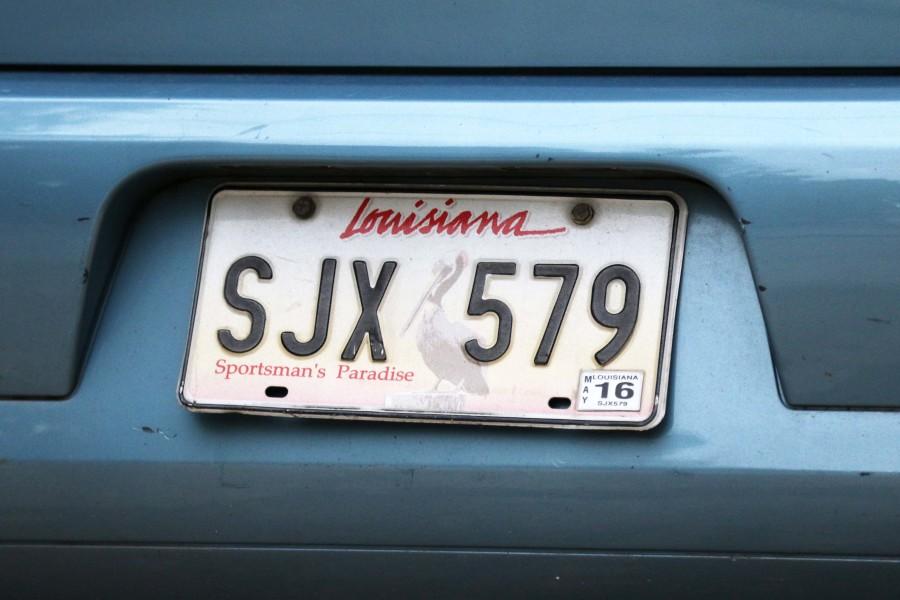Louisiana runs out of license plate combinations
September 10, 2015
After 20 years of the same system, Louisiana is finally running out of license plate combinations.
The Louisiana Office of Motor Vehicles in Baton Rouge confirmed that in 2016, they will be changing the license plate system.
“We will be changing the license plates to ‘three numbers, three letters’ sometime in 2016. An example would be 111AAA,” the office said in an official statement, .
Recently issued license plates already begin with the letter “Z”. The “Lipstick Plate” AAA111, which got its nickname because of the distinctive red and curved writing on it, was implemented in 1995 and will only have lasted about 20 years if the predictions come true.
New license plates could be issued for another 20 years by using the reversed combinations before the next modification of the system would be necessary.
Joshua Sierra, music performance sophomore, did not understand why the state of Louisiana wouldn’t consider implementing a more future-oriented combination system.
“I think it’s short-sighted and irresponsible. They have a responsibility towards the drivers of our state,” Sierra said.
Mark Regan, mass communication senior, said it reminded him of the government’s general attitude towards long-term decisions.
“It’s like they do not really care about the future. Such a decision will just give them another 20 years they don’t have to worry about a long-lasting system,” Regan said.
There have been several different license plate combination systems, special plates and visual adaptations throughout the last 50 years of Louisiana road traffic history.
Plate slogans were changed from “Sportsmen’s Paradise” to “Sportsman’s Paradise” to “Bayou State” and back again. There have been special plates for the World’s Fair 1984 in New Orleans and a pelican was introduced to represent the state of Louisiana.
Before the “Lipstick Plate,” the combination included only a single letter in between two numerical sequences which depended on the area of plate issuance.
The state of Louisiana has now another 20 years time to figure out the next system.






